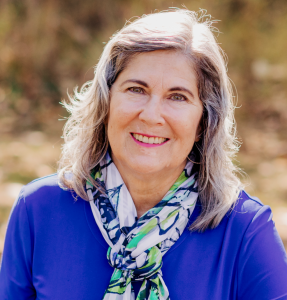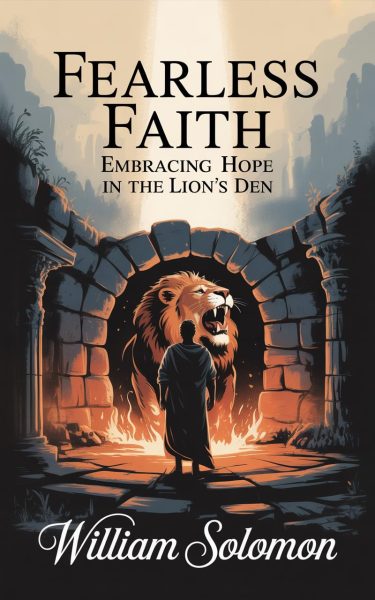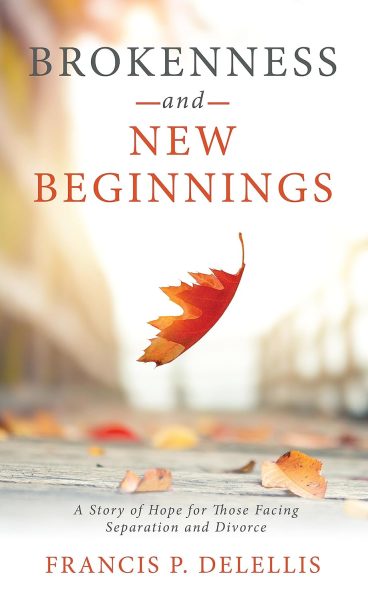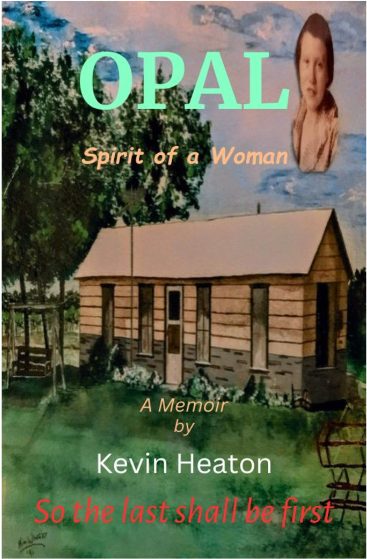 Tell us about yourself.
Tell us about yourself.
I am a recovering CPA. I nearly destroyed my health with the long hours and stress of tax seasons. Fortunately, I was able to reclaim my health with diet and lifestyle changes. Burnt out as a CPA, I knew I had to change directions and decided to help others reclaim their health. So, I went back to school and earned two nutrition certifications and a master's in Human Nutrition and Functional Medicine.
I am now a functional nutritionist, writer, and speaker. I enjoy cooking, creating new recipes, and developing unique, allergy-friendly seasonings for my spice blend company, Spice Cure.
Where did you grow up, and how did this influence your writing?
I grew up in central Montana. Interestingly, my grandfather was a wheat farmer, and I believed whole wheat was a superfood. One year, I asked my dad to bring me back some wheat from Grandpa's harvest. He told me I didn't want that stuff with all the "crap" Grandpa sprayed on it. I wondered if my dad thought that "crap" magically disappeared between the field and the bread on the grocery store shelf.
That moment stuck with me. It planted early questions about our food system, chemicals in agriculture, and whether what we eat truly nourishes us. Decades later, those questions became part of my life’s work—studying functional nutrition, creating healing recipes and spice blends, and writing about the connection between faith, food, and health. Growing up in farm country gave me a deep respect for hard work, but it also opened my eyes to how far our food has drifted from God’s design. That perspective influences everything I write today.
What was your journey to getting published like?
My publishing journey began when a friend introduced me to the acquisitions editor at Callisto. That connection led to commissioned contracts for two cookbooks, which gave me firsthand experience with editing and the traditional publishing process. When it came time to publish God’s Prescription, I chose a different route. I hired a company to help me navigate self-publishing so I could maintain creative control and ensure the book reflected both my faith and my functional nutrition perspective. It’s been a learning process, but one that’s stretched me and confirmed that sharing these messages is worth the effort.
Do you have a favorite Bible verse or passage that influences your writing, and if so, how does it play a role in your books?
My favorite verse is Jeremiah 29:11: “For I know the plans I have for you,” declares the Lord, “plans to prosper you and not to harm you, plans to give you hope and a future.” That promise of hope and wholeness influences everything I write. In a world where people often feel trapped by illness, confusion, or the “sickcare” system, I want my books to point them back to God’s good plans. Health isn’t about perfection or fear—it’s about trusting that God’s design still works and learning how to live in alignment with it.
What advice would you give to fellow Christian authors who are looking to write stories that inspire and uplift others?
My advice is simple: write boldly and without fear. Don’t hold back what God has put on your heart. The world is full of noise and discouragement, but Christian authors have a unique call to bring truth, hope, and light. Your words may be the encouragement someone needs to keep going or the spark that helps them realign with God’s plan. Don’t wait for perfect timing or perfect polish—obedience matters more than perfection.
How has your own relationship with God influenced your approach to writing and your storytelling process?
I lacked confidence at first and didn’t think I had stories worth telling. God used earlier experiences—like writing cookbooks and health articles for the media—to prepare me for this larger project. When I finally committed to finishing His project, everything changed. Each morning, the Holy Spirit gave me the stories and insights I needed. I would wake up with words on my heart that fit perfectly into the message. My relationship with God has taught me that writing isn’t about striving, but about surrender—trusting Him to provide the content in His timing.
What challenges did you face when writing for a Christian audience, and how did you overcome them?
One of my biggest challenges was the fear of alienating non-Christian readers. But I realized I couldn’t write to everyone—I needed to faithfully serve the audience God called me to. In the end, I made a business decision to speak directly to my Christian avatar and trust God with the rest. That shift gave me the freedom to write with authenticity and clarity.
How do you balance sharing your personal spiritual journey with creating a narrative that resonates with a broad Christian audience?
I share my personal journey honestly, but I focus on the biblical principles that apply to all believers—like stewardship, honoring our temples, and not being of the world. While my specific experiences are unique, the truths behind them resonate across denominations and traditions. My goal is never to divide but to encourage, pointing readers back to Scripture as the foundation for health and life.
When you’re not writing, how do you like to spend your time?
My favorite pastime is spending time with family. Unfortunately, we don't live close to most of them, but we try to travel to as many of their athletic competitions as we can.
Do you remember the first story you ever read, and the impact it had on you?
The first story I remember being read to me was Mr. Grabbit the Rabbit. My mom shared it with me as a child, and it left such an impact that I later hunted down a second-hand copy to read to my grandchildren. The story of gluttony and greed was simple, yet unforgettable, and it showed me how powerful stories can be in shaping values. That early experience is part of why I weave stories throughout my own writing today—to help truths take root in the heart and stay with readers for life.
What inspired you to write your latest book, and how does it reflect your Christian faith?
I wrote God’s Prescription because God told me to tell His people that the healthcare and food systems are not what He intended. Writing this book was an act of obedience, and it reflects my faith by pointing back to God’s truth instead of man’s broken systems.
How do you incorporate biblical principles into your storytelling without it feeling forced?
I would never tell a story if it felt forced. However, just like there’s an app for that, there’s a verse for that. Scripture flows naturally into the stories I share, but I’m careful not to take verses out of context. That way the biblical principles remain authentic and connected, not tacked on.
Can you tell us about a character in your book that embodies Christian values, and what lessons can be learned from them?
While God’s Prescription is nonfiction, one figure I highlight is Daniel. He embodies Christian values through his courage and refusal to conform to the king’s food and practices. Daniel’s example reminds us that honoring God sometimes means going against cultural norms, even when it’s difficult. The lesson is clear: God blesses obedience, and we can trust Him with the outcome when we choose His design over the world’s way.
What’s next for you as a writer?
Next, I’m writing a companion workbook to use with God’s Prescription in Bible studies. After that, I plan to release a series of cookbooks built around the Anti-Inflammatory Rainbow Diet (AIRD) introduced in Chapter 10, offering practical recipes to help people live out the principles in the book day by day.
Are there any Easter eggs or hidden messages in your work?
You’ll have to read it to find out. I believe the Holy Spirit highlights different parts of the book for different readers, so what feels like a hidden message to one person may be entirely different for another.
How do you approach writing themes of forgiveness, grace, or redemption in your stories?
I simply speak the truth based on Scripture. God’s Word naturally carries those themes, and my role is to share them faithfully and in context.
What do you hope readers take away from your book in terms of spiritual growth or personal reflection?
What I hope readers take away is freedom — freedom from the confusion of the world’s health messages, and freedom to make informed choices based on God’s design.
I want them to see that true health isn’t about chasing perfection or the latest fad, but about stewardship — honoring their body as God’s temple, one step at a time, one daily choice at a time. That mindset shift is huge.
I also hope they recognize the deep connections — between their mindset, relationships, food choices, rest, and faith. It’s all connected. God wove it all together, and when we realign with His wisdom, we can reclaim not only our health, but also our joy, our purpose, and our ability to serve others.
So, if readers walk away feeling encouraged, equipped, and confident that God’s design still works — and empowered to live it out in practical, sustainable ways — then I’ve accomplished what I set out to do.
Terri Ward’s Author Websites and Profiles
Website
Amazon Profile
Goodreads Profile
Terri Ward’s Social Media Links
Facebook Page
Twitter
Instagram
LinkedIn
Pinterest
All information in this post is presented “as is” supplied by the author. We don’t edit to allow you the reader to hear the author in their own voice.
Author Interview Series
To discover a new author, check out our Featured Authors page. Our authors are just waiting for you to discover them. If you enjoyed this writer’s interview feel free to share it using the buttons below because sharing is caring!
If you are an author and want to be interviewed just fill out our Author Interview page.
If you are looking for a new book to read check out our Featured Books Page.










